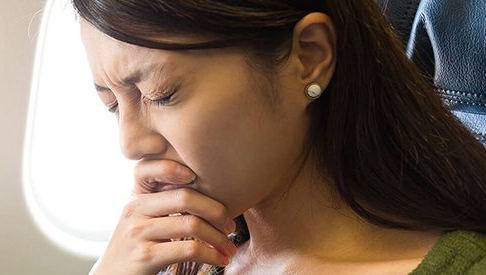Needed In Emergency

You’ve packed your bags, dropped off your dog at a relative’s house, and checked in at the airport. Your plane is even running on time! You remembered your sunscreen, your iPod, and the new mystery novel you’ve been planning to read. Finally, nothing can stand in your way. Now, you find yourself an route to your vacation destination for a week in the sand and sun. Then, you notice a dreaded pang in your tooth. After everything has gone so smoothly, why do you find yourself with a nasty toothache as soon as your plane takes off? Believe it or not, this is a common occurrence. Today, we will discuss why it happens, and how you can find a skilled and knowledgeable 24/7 local dentist as soon as your plane lands.
The Relationship between Flying and Toothaches
When flying, your teeth can hurt for the same reasons your ears pop: fluctuations in cabin pressure. While many travelers experience exacerbated symptoms of an existing problem, oftentimes a toothache will appear out of nowhere and with no warning. This unfortunate consequence of high altitude is so perplexing that there is now a branch of science dedicated to the phenomenon called aviation dentistry.
Dental Conditions and Altitude Changes
Experts have termed tooth pain related to atmospheric pressure changes as bar odontalgia, and they have even identified different types of conditions based on whether the pain occurs on the ascent or descent. For example, if your dental pain flares up shortly after takeoff, it could indicate an inflamed or irritated tooth pulp. If the discomfort is triggered as the plane’s altitude decreases, the pulp may actually be necrotic (dead). The root cause of bar odontalgia can vary for each individual. In some cases, it is due to deep dental decay. Other times, it may be the result of impacted wisdom teeth, deep periodontal pockets, or an infected tooth root.
Dental Restorations and Altitude Changes
Another dental condition common to those traveling by air is odontocrexis, which affects teeth that have previously been restored. Odontocrexis is caused by trapped air underneath faulty fillings, crowns, or other dental restorations. In comparison, when air is trapped in the sinus cavity, pressure can typically be equalized by “popping” the ears. However, when air is trapped inside the tooth structure, it has nowhere to go. Therefore, pain ensues.
How to Manage Your Discomfort In-Flight
Now that you know what causes toothaches on an airplane, let’s explore how you can manage the discomfort. First, take an over-the-counter medication, such as ibuprofen or naproxen. This should reduce any inflammation and temporarily alleviate the pain. Ask the flight attendant for a cup of ice and a Ziploc bag, make a cold compress, and apply it to the external jaw in 20-minute increments. It is also helpful to drink lots of water, so you can stay hydrated.
What to Do When Your Plane Lands
Once you are off the plane, contact a dentist in the area right away. You will want to seek dental care immediately, so the problem does not worsen. (And you certainly don’t want a repeat experience on your return flight!) Trying to locate a dentist in another city after normal business hours may seem like a daunting task, but the Emergency Dental Service makes it easy to find a 24-hour 24/7 local dentist near you. Simply search our network of dental providers, click on a location, and request an appointment. It’s that easy!
Contact the 24/7 local dentist
If you are traveling and develop a sudden toothache, contact the 24/7 local dentist online or by calling (833) 220-2448 . With nationwide service and a team of skilled and compassionate doctors, you’ll be feeling better and soaking up rays in no time.










